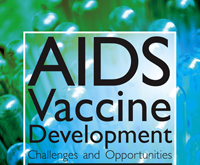On the Brink of Discovery of AIDS Virus Vaccine
The scientists reveal details of discovery that may be revolutional for the whole world. U.S. researchers found that immune system particles that attack the AIDS virus may finally open a way to make a vaccine that could protect people against the deadly and incurable infection.

They used new technology to troll through the blood of 1,800 people infected with the AIDS virus and identified two immune system compounds called antibodies that could neutralize the virus.
And they found a new part of the virus that the antibodies attack, offering a new way to design a vaccine, they reported in the journal Science.
"So now we may have a better chance of designing a vaccine that will elicit such broadly neutralizing antibodies, which we think are key to successful vaccine development," said Dennis Burton of The Scripps Research Institute in La Jolla, California, who led the study.
"The findings themselves are an exciting advance toward the goal of an effective AIDS vaccine because now we've got a new, potentially better target on HIV to focus our efforts for vaccine design," added Wayne Koff of the International AIDS Vaccine Initiative, or IAVI, which sponsored the study.
Since the AIDS pandemic started in the early 1980s, more than 25 million people globally have died from the virus. The World Health Organization estimates that 33 million are currently infected.
There is no cure, although a cocktail of drugs can help keep the virus under control. Efforts to make a vaccine have failed almost completely.
Part of this is because the virus mutates so much that any one person is infected with millions of different versions, each one appearing different to the immune system.
In addition, the virus infects the very immune cells that are supposed to help protect the body. And if even one virus gets past the immune defense, it appears to set up a lifelong infection. No drug has been able to eradicate it.
IAVI director Dr. Seth Berkley said the findings will not lead directly to a vaccine, but show that there are new and better ways to design one, Reuters reports.
Subscribe to Pravda.Ru Telegram channel, Facebook, RSS!




